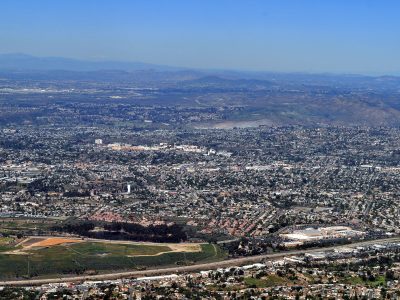
The challenge to San Diego County’s Climate Action Plan (“CAP”) in Golden Door has been closely watched by many interested in the use of carbon offsets to mitigate GHG impacts in California. Simply put, carbon offsets are mechanisms that reflect off-site GHG reductions—from activities like reforestation—that can, in some cases, compensate for a project’s GHG emissions. Litigation over San Diego County’s CAP has lasted years; on June 12, the Court of Appeal issued an opinion that will likely impact the future use of carbon offsets as mitigation by projects throughout California.
One of the Petitioners’ main challenges was directed at the CAP’s Supplemental Environmental Impact Report (“SEIR”), which included a GHG mitigation measure that provided for the extensive use of carbon offsets. The CAP heavily relied on carbon offsets to mitigate GHG emissions increases associated with its updated General Plan, intending to use carbon offsets to cover over 80% of emissions resulting from some development projects. Petitioners asserted that the CAP’s use of offsets failed to comply with CEQA regulations. In its decision, the Court took issue with not only the scale of the carbon offset program, but also its implementation and potential effects on statewide emissions reduction efforts, such as SB 375.
SB 375 targets land use and transportation planning because the transportation sector contributes over 40% of California’s GHG emissions. The law requires each regional planning organization to create a Regional Transportation Plan (“RTP”) and Sustainable Communities Strategy (“SCS”) to achieve GHG emissions reductions in their region to meet statewide goals set by the California Air Resources Board (“CARB”). In Golden Door, the Court found that the CAP’s planned use of offsets for mitigation was inconsistent with the RTP. Specifically, the RTP required the reduction of vehicle miles traveled (“VMT”) as part of reaching California’s 2050 emissions goals. VMT increases have been demonstrated to increase GHG emissions; CARB has identified VMT reduction as part of its overall emissions reduction strategy.
Part of California’s VMT reduction strategy includes land use planning focused on limiting urban sprawl, which results in more vehicles traveling on the road. Because San Diego County’s CAP allowed unlimited use of carbon offsets, VMT could continue to increase unimpeded as long as enough offsets were purchased. In an amicus brief for Golden Door, the California Attorney General argued that local government reliance on offsets in this way would interfere with the attainment of California’s GHG emissions reduction targets. The Court agreed, noting that if California is to meet its smart growth and regional transportation goals, proposed developments and their mitigation measures must achieve consistency with statewide emissions policies. This suggests that projects intending to use offsets to mitigate their GHG emissions should consider how the proposed use of offsets will interact with state goals to reduce VMT.
The Court also found that the CAP’s proposed use of offsets for mitigation was not enforceable as required by CEQA. Despite the County’s attempts to compare the measure to CARB’s Cap-and-Trade Program, the Court found substantial differences between the two programs. First, the CAP set no limit on the amount of emissions that could be covered through offsets. This stands in stark contrast to CARB’s 8% limit for the use of offsets to meet Cap-and-Trade obligations; a limit that will be reduced to 4% as early as 2021. The Court’s concern over this divergence was not merely hypothetical; far beyond covering 8% of emissions, some projects subject to the County’s CAP sought to cover over 80% of their emissions through carbon offsets. Second, unlike CARB’s registry program, which generally requires emissions reductions from offsets to occur inside the United States, the CAP provided for the possibility of using international offsets. While such offsets were the least-preferred type, they could still be utilized if in-county, in-state, or in-country offsets were not available to fully mitigate a project’s impacts.
But critically, the CAP had no objective standards for determining whether offsets were sufficiently available in any given tier. Instead, it left approval or denial of a particular offset to the “satisfaction” of the Planning Director. The County offered no guidance to suggest factors the Planning Director should consider in making such a decision, nor were there standards describing what “satisfaction” looked like in practice beyond the subjective preference of the Planning Director. The Court explained that the combination of these factors could result in unlimited emissions increases inside the county offset by entirely international carbon offsets.
This concern is particularly pertinent because the cheapest offsets are likely to come from outside the United States, raising multiple issues. Although the County argued that emissions reductions anywhere on Earth are helpful because global warming occurs on a global scale, it is the communities where the emissions occur that must bear the brunt of the immediate environmental effects. For this reason, the California Attorney General and the Court both questioned the appropriateness of a measure that would allow for increased emissions and related impacts on air quality, energy, and transportation in California if those emissions were mitigated elsewhere in the world.
The Golden Door opinion provides some limits on carbon offset programs based both on CEQA requirements and California emissions reduction strategies. In its decision, the Court suggested some best practices for development projects aiming to use carbon offsets as a GHG mitigation measure. Importantly, offsets should not constitute the majority or even the bulk of mitigation for a project. Geographically, projects should endeavor to purchase offsets generated as close to the project as possible. Finally, lead agencies should develop and apply clear, objective standards for determining when to use offsets that are not generated locally. These principles are likely to influence whether and how California development projects may use carbon offsets in the future – with courts continuing to look carefully at whether offsets are consistent with California’s long-term climate goals.
John Graham is a third-year student at UCLA Law. John has been working as a legal intern for UCLA’s Emmett Institute this summer.
The post Guest Blogger John Graham: California Court Decision Will Affect Future Use of Carbon Offsets to Mitigate Emissions of Development appeared first on Legal Planet.
By: Guest Contributor
Title: Guest Blogger John Graham: California Court Decision Will Affect Future Use of Carbon Offsets to Mitigate Emissions of Development
Sourced From: legal-planet.org/2020/07/24/guest-blogger-john-graham-california-court-decision-will-affect-future-use-of-carbon-offsets-to-mitigate-emissions-of-development/
Published Date: Fri, 24 Jul 2020 14:59:23 +0000
Vist Maida on Social Me
Website Links
Maida Law Firm - Auto Accident Attorneys of Houston, by fuseology

No comments:
Post a Comment